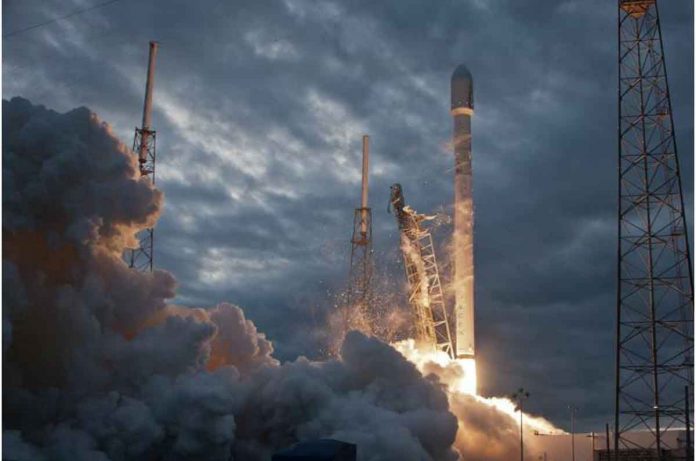Rapidly evolving technology and space debris reported in various locations around the world, including pieces of a Chinese Long March 5B rocket in the Indian Ocean, signal the need for a new era of space regulation, according to Flinders University experts.
Their timely new report urges governments to pay greater attention to the use of low-Earth orbit as space laws and technologies advance at breakneck speed.
The space experts from Flinders University’s Jeff Bleich Centre are raising concerns on several fronts ahead of a meeting of intergovernmental experts at next year’s World Radio Conference, beginning with the rise of commercial interest in satellite “mega-constellations” in Low-Earth Orbit (LEO).
“While there are laws that cover space activities, they are already under stress due to the rate at which the commercial space industry is evolving,” says Joel Lisk, research associate in space law at Flinders University’s College of Business, Government, and Law.
“We must work to ensure that we have broad and flexible regulatory frameworks that are responsive to rapid change and future developments.”
“Without these bold and progressive steps, we risk reducing commercial activity and investment, and society will miss out on the benefits that this vital sector can provide.”
In what has been described as a “gold rush,” large corporations are rapidly establishing large-scale LEO deployments and providing services around the world.
In the five years leading up to December 2019, the number of satellites orbiting Earth increased by 77%, and in 2020, the number increased by 37% to 3371 active satellites.
The US Federal Communications Commission has approved SpaceX’s Starlink system for 12,000 satellites, and the company is seeking approval for an additional 30,000 satellites, with the increased number of LEO filings with national regulatory agencies prompting aviation giant Boeing to express serious concerns about long-term space safety and sustainability.
Melissa de Zwart, Flinders University Professor (Digital Technology, Security, and Governance) and deputy chairman of the Space Industry Association of Australia, believes there is legitimate cause for concern.
“We’ve heard about possible Starlink debris falling to Earth in regional NSW, as well as Russia’s decision to exit the International Space Station, which is set to be retired after 20 years in space,” says Professor de Zwart, director of the US Alliance in Digital Technology, Security, and Governance.
“We also need to weigh the risks versus the benefits of launching promising new low-cost communication and connectivity channels, as well as Internet of Things and Machine-to-Machine applications that could bring significant benefits to remote and financially disadvantaged communities.”
The Flinders report considers several other complex challenges, including physical and spectral interference management, optical and radio astronomy, including casual night sky viewing, and competition between operators in the LEO region, in addition to spectrum capacity and debris management that may cause harm in space or on Earth.

